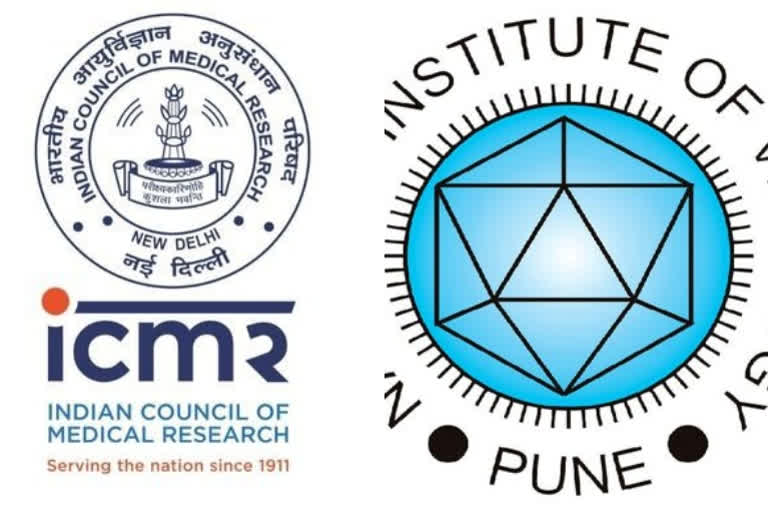New Delhi: A study conducted by the Indian Council of Medical Research (ICMR) and National Institute of Virology (NIV, Pune) has revealed that breakthrough infection occurred during the third wave of COVID 19 pandemic 31 days post the second dose of Covishield vaccination. "Yes, the study was conducted by ICMR-NIV, Pune to ascertain the duration of reinfection during the third wave of the pandemic," said ICMR spokesperson Dr. Lokesh to ETV Bharat on Friday.
For the study, four COVID-19 individuals with two doses of the Covishield vaccine (Oxford-AstraZeneca formulation) were administered four weeks apart. "The SARS-CoV-2 breakthrough infections confirmed by screening throat and nasal swab with real-time RT PCR. The infection occurred 31 days post the second dose of Covishield vaccination," the findings of the study said. The complete genome sequence revealed the reinfection with Kappa and Delta variants.
"Two cases of breakthrough infection (Kappa variant) were asymptomatic, while two cases (one Kappa and one Delta) were symptomatic and presented with fever, sore throat, productive cough, headache, myalgia, generalized weakness, loss of appetite as well as loss of smell and taste," the findings said.
Also read: Active Covid cases in country decline to 90,707
Subsequently, these four cases got reinfected with SARS-CoV-2 BA.2 sub-lineage post breakthrough infection at a mean of 275 days. "Of the reinfection cases, one patient was asymptomatic, while three other patients had a mild fever, cold, cough, and sore throat," the study said.
The variant analysis of the reinfection cases of Omicron demonstrated significant mutations (K417N, S477N, T478K, E484A, Q493R, Q498R, N501Y, Y505H) responsible for the immune evasion. "The pre-reinfection sera (collected post 8 months of breakthrough) demonstrated Geometric Mean Titre (GMT) of 303.6 for S-1RBD IgG antibodies suggesting waning immune response at the pre-reinfection period. Significantly, negligible median NAb titers (GMT 319, 102, 0.5) were observed against B.1, Delta, and BA.1," the study said.
Asserting the need for the booster vaccination dose, the study said that even with a complete dose of vaccination followed by breakthrough infection, a reduced immune response was observed at pre-reinfection. "Irrespective of the immune status with vaccination or the natural infections, many breakthroughs and reinfections have been observed across the globe. Considering this, along with booster dose vaccination, the continuation of non-pharmaceutical intervention such as the use of mask, hand hygiene, and physical distancing would be the good strategy to curb the spread of infection," the study said.



